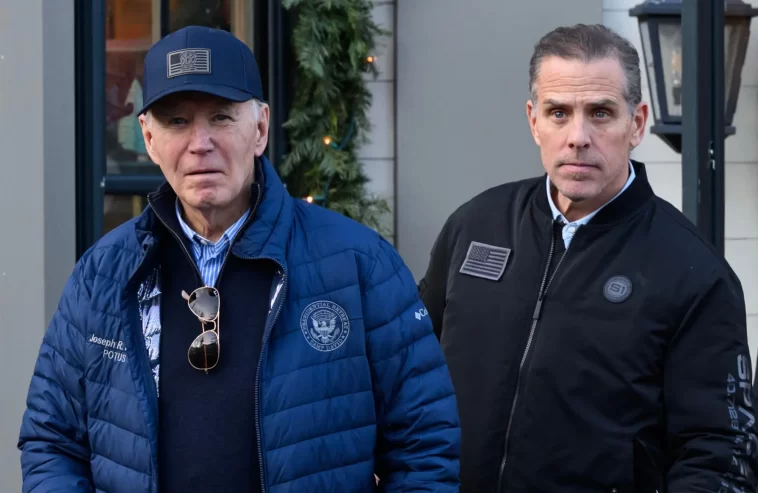Recent clemency actions by President Joe Biden included a shocking sentence commutation for a doctor sentenced for chemotherapy fraud. It draws a striking difference from his long-held stance of advocating for the rights of cancer patients and their survival struggle. Of the nearly 1,500 prisoners dolled out leniency by Biden, one case involving Mississippi oncologist Meera Sachdeva has raised eyebrows.
Sachdeva faced a two-decade prison sentence after pleading guilty to a ghastly act of chemotherapy fraud. In an exploitative scheme, she administered only partial doses of the prescribed cancer treatment to her unsuspecting patients. Meanwhile, she calculatedly charged them for the entire amount.
In 2012, the oncologist admitted her guilt to federal charges. These ghastly offenses included a grand betrayal of trust and outright deception of health insurance providers and Medicare. She submitted false claims in the name of the innocent patients she was ‘treating’, profiting from their dire situation.
Alongside two decades behind bars, Sachdeva was also directed to repay a whopping $8.2 million as restitution. U.S. prosecutors on the case explained the depth of deception practiced by Sachdeva between 2007 and 2011. Her patients, under the believe that they were receiving the appropriate, billed amount of chemotherapy, were instead handed reduced dosages.
The presiding U.S. District Judge Daniel P. Jordan III at this shocking trial couldn’t suppress his disdain for Sachdeva’s repugnant actions. Her treatment of vulnerable patients, at a time in their life when they were most in need, left the judge essentially appalled. With stern observation, he stated, ‘It’s a very small thing to send this woman to jail for the next 20 years when you compare it to the damage she has done.’
Sachdeva’s fraudulent activities didn’t just hurt her patients but also drastically abused the public’s trust. Her motivation was nothing but unrestrained greed feeding her actions. A firm stand was taken that the integrity of the health care system must be respected and federal health care laws treated with utmost seriousness.
Yet, Biden’s unprecedented move to commute Sachdeva’s sentence keeps adding to the growing skepticism around his presidency. His clemency list has attracted more scrutiny, with several names raising concerns about their pardons. Interestingly, most of them share a common thread of abusing positions or partaking in dubious schemes.
This case of clemency for Sachdeva seems particularly jarring when you consider Biden’s history of advocating for cancer patients. It’s almost paradoxical to his launching of the Cancer Moonshot in 2016 during his tenure as Vice President. The initiative’s premise was to unite cancer researchers to expedite scientific discoveries in the battle against cancer.
In an ironic twist, Biden announced the Cancer Moonshot initiative shortly after his son, Beau Biden, succumbed to a rare form of brain cancer. It’s bewildering that such a personal tragedy did not prevent Biden from commuting the sentence of a doctor who took advantage of her cancer patients.
Amid this perplexing context, Biden’s words when announcing the clemency actions feel hallow. His statement of America ‘being built on the promise of possibility and second chances’ hardly resonates with the victims of Sachdeva’s fraud. One wonders if they see this as an opportunity for their tormentor to have a second chance instead of themselves.
Biden lauds himself on the ‘great privilege of extending mercy to people who have demonstrated remorse and rehabilitation.’ However, it’s disconcerting how this mercy extends to someone like Sachdeva who has abused the sanctity of a physician’s role and left a trail of suffering in her wake.
In his statement, Biden expressed intent to ‘restore opportunity for Americans to participate in daily life and contribute to their communities.’ Yet, one wonders about the participation and contribution to their communities of those patients who suffered under Sachdeva’s fraudulent healthcare treatments.
Furthermore, Biden’s aim to ‘remove sentencing disparities for nonviolent offenders, especially those convicted of drug offenses,’ seems oblivious to the gravity of Sachdeva’s actions. Her crime while nonviolent in nature, was intensely harmful. The physical and emotional damage to cancer patients can hardly be downplayed as minor.
So, we see a continuing trend in Biden’s presidency: A preference for the criminal’s second chance over justice for the victims. The value of the victims’ wellbeing and trust appears to hold no bearings in his decisions. This leaves us to question who this current regime truly serves.
Biden’s clemency activities reveal a paradoxical attitude, almost provocative, towards his past advocacy for cancer patients. Patients’ wellbeing, justice, and the gravity of their condition appear dwarfed by the mission of giving second chances. As this distasteful act unfolds, we are reminded once again of the questionable leadership priorities in this administration.
In sum, Biden’s mercy seems misdirected, preferentially falling on the wrongly deserving rather than those truly in need. Sachdeva’s clemency feels like a mockery of his past Cancer Moonshot intentions. This continues a concerning pattern of hypocrisy and a blurring of moral lines, hallmarks of Biden’s presidency.


